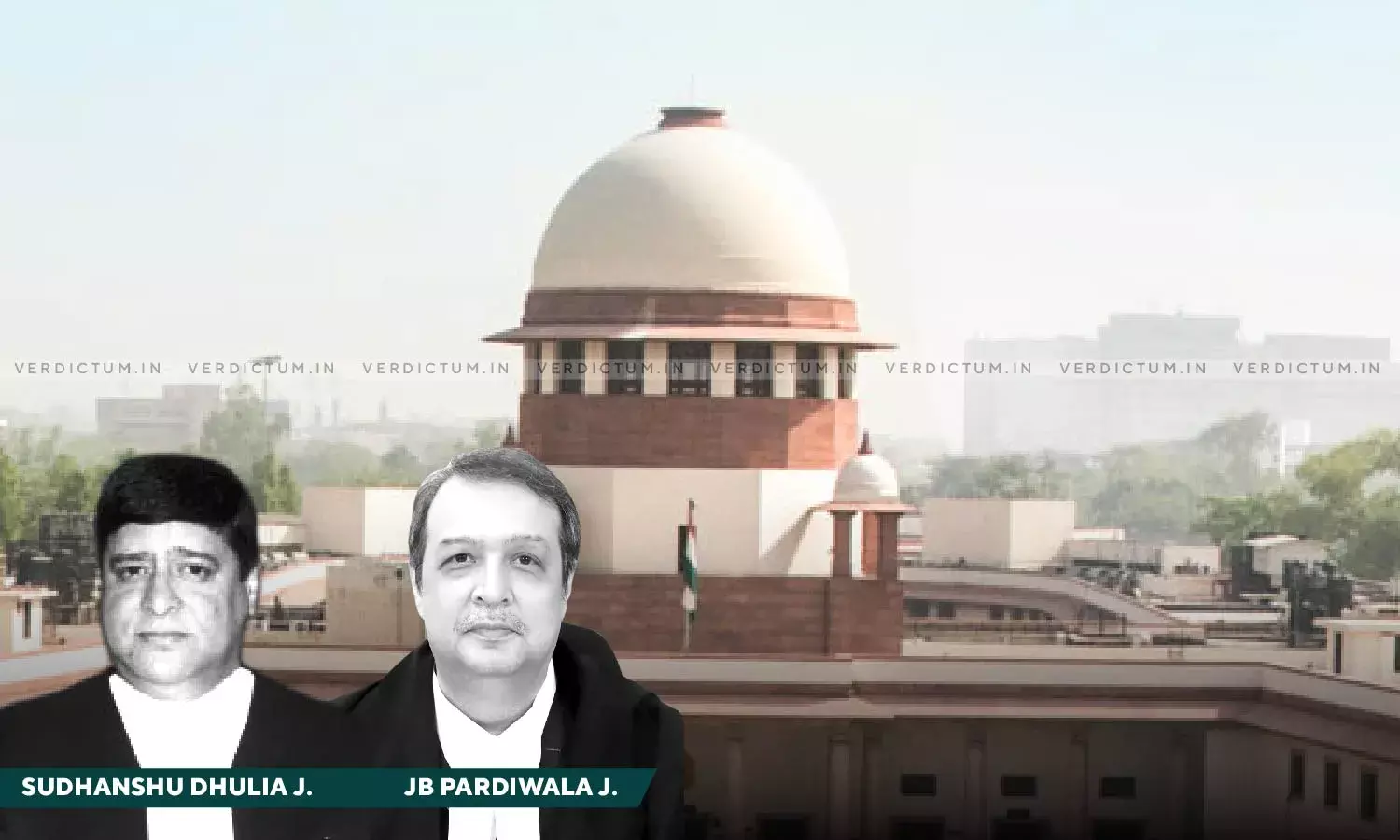If The Right Of Redemption Is Not Extinguished, Order IX Rule 9 Of CPC Will Not Debar Mortgagor From Filing A Second Suit: SC

The Supreme Court has held that if the right of redemption is not extinguished, the provision of Order IX Rule 9 of the Code of Civil Procedure will not debar the mortgagor from filing a second suit.
Order IX Rule 9 of the CPC provides that when the suit is wholly or partially dismissed under Rule 8 (dismissed for default) the Plaintiffs shall be precluded from bringing in a fresh suit, in respect of the same cause of action.
"...if the right of redemption is not extinguished, the provision like Order IX Rule 9 of the CPC will not debar the mortgagor from filing a second suit because as in a partition suit, the cause of action in a redemption suit is a recurring one.", the bench of Justice Sudhanshu Dhulia and Justice J.B. Pardiwala observed.
The Court noted that unless the equity of redemption is so extinguished, a second suit for redemption by the mortgagor, if filed within the period of limitation, is not barred.
The Court made this observation while dealing with an appeal against the Order affirming the Order passed by the Additional District Judge allowing the Plaintiffs to amend the plaint under the provisions of Order VI Rule 17 of the Code of Civil Procedure.
Advocate Rajeev M. Roy appeared for the Appellant-Defendant whereas Advocate Tejasvi Kumar appeared for the Respondent.
In this case, the plaintiffs had filed a suit against the appellants herein for a declaration that the Plaintiffs are the lawful owners of the suit property i.e., the shop and the same had been let out to the father of the Appellant-Defendant herein and after the demise of the father of the Defendant, he stopped paying the rent to the Plaintiffs and illegally inducted defendant Nos. 2 to 5 resply as sub-tenants in the shop in question. Thus, the Plaintiffs prayed for a decree of possession of the shop.
The suit came to be dismissed on account of non-prosecution.
Thereafter the plaintiffs filed another suit with the prayer that the Plaintiffs be permitted to redeem the mortgage and take back the possession of the suit property. The plea by plaintiff came to be rejected. The Order was challenged before the District Court. The District Court allowed the revision application.
The appellant herein challenged the Order before the High Court. The High Court declined to interfere with the order passed by the District Court. Aggrieved, the appellant-Defendants approached the Apex Court.
The Appellant Defendant put forward an argument as regards the applicability of Order IX Rule 9 of the CPC to submit that the amendment should not be permitted as the present suit by itself is not maintainable as the earlier suit filed in the Small Causes Court came to be dismissed for non-prosecution.
The Court observed that “The term “same cause of action” assumes significance in as much as the bar under Order IX Rule 8 of the CPC applies to a later suit only in respect of the very same cause of action. In case the cause of action in the later suit was altogether different, which has nothing to do with the cause of action in the earlier suit, the statutory bar has no application to such later suits.”
The Court added that “It was not the intention of the Legislature to bar the subsequent suits between the parties and the same was evident by the qualifying words, “same cause of action”. Therefore, everything depends upon the cause of action and in case the subsequent cause of action arose from a totally different bunch of facts, such suit cannot be axed by taking shelter to the provision of Order IX Rule 9 of CPC.”
The Court noted that Order IX Rule 9 of the CPC provides that when the suit is wholly or partially dismissed under Rule 8 (dismissed for default) the Plaintiffs shall be precluded from bringing in a fresh suit, in respect of the same cause of action.
The Court held that the present suit is not filed on the same cause of action.
“In the present suit, the case of the Plaintiffs as put up in the alternative is that the Defendant is in possession of the suit property as a mortgagee and they are ready to redeem the mortgage by making the necessary payment of the mortgaged amount and take back the possession. Whether the relief prayed for is time barred or not is for the trial court to decide on the basis of the evidence that the parties may lead. As observed by the Privy Council in Mohammad Khalil Khan (supra) if the evidence to support the two claims is different than the causes of action are also different. Hence, the contention raised on the basis of the provisions of Order IX Rule 9 of the CPC has no merits.”, the Court held.
The Court also noted that unless the equity of redemption is so extinguished, a second suit for redemption by the mortgagor, if filed within the period of limitation, is not barred
Thus the Court dismissed the appeal.
Cause Title- Ganesh Prasad v. Rajeshwar Prasad & Ors.
Click here to read/download Judgment

